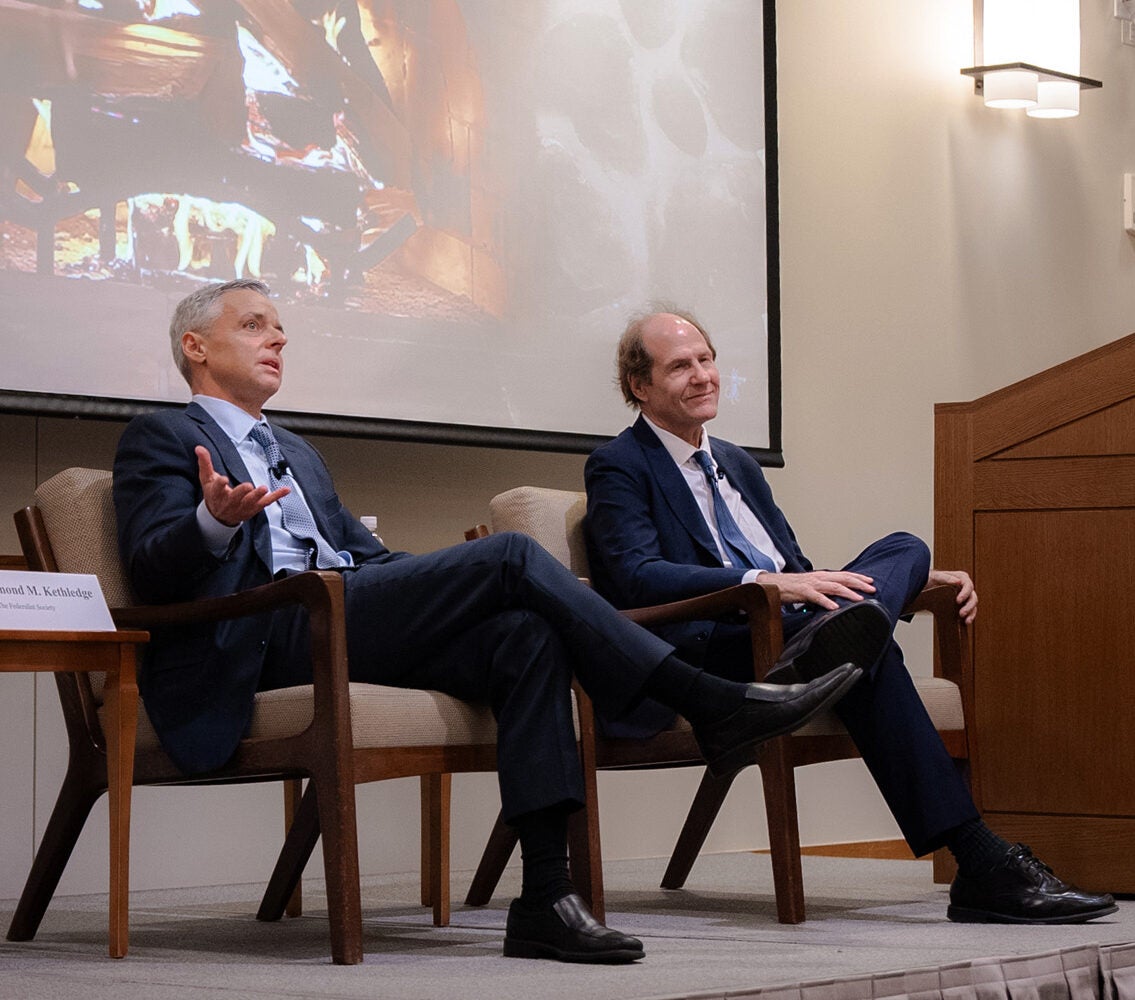The three branches of American government — executive, judicial and legislative — are designed to put checks and balances on each other. When the balance is not maintained, Cass Sunstein ’78, the Robert Walmsley University Professor at Harvard, suggests, you have the words that Tom Hanks spoke when he was an astronaut [in the movie “Apollo 13”]: ‘’‘Houston, we have a problem’.”
Sunstein delivered his remarks as part of a “fireside chat” with the Hon. Raymond M. Kethledge, U.S. Court of Appeals Judge and a lecturer on law at Harvard. Their discussion kicked off the weekend-long National Student Symposium hosted by the Harvard Federalist Society, with a theme of “Why Separate Powers?” The gathering featured a series of panels examining why and how the separation of the three branches of government is necessary to American democracy.
In their discussion, both Sunstein and Kethledge agreed that separation of powers was essential to the rule of law. To clarify this, Kethledge offered a working definition of the latter. He said he would submit that “the rule of law is a condition in which the state may coerce the individual only in the enforcement of a known rule that applies equally to everyone.” The opposite of this in an unfree society, he said, is “coercion by will” — a state where political opponents may fall out of windows or be gunned down in the street, by the will of a government official.
[Watch the full 2024 National Student Symposium playlist on YouTube]
Separation of powers prevents this, Kethledge said, by requiring the concurrence of all three government branches to enforce a rule. “That’s a lot of concurrences. And it would be difficult to coerce by will someone who had not violated the rule when you have the requirement of those three.” This, he suggested, makes malevolent acts by government actors — such as the executive writing a vague law to target an enemies list — harder to accomplish. “We consolidate power at our peril,” he said. Yet he noted that two branches working in collusion — an executive enforcing a law, and a judiciary interpreting it — could still accomplish coercion by will, if with more difficulty.
Kethledge traced the concept of separation of powers back to the Magna Carta, the Great Charter of English liberties, which, when first promulgated in 1215 marked the first formal declaration that the king was not above the law. Referring to Magna Carta four decades later, the historian Henry de Bracton wrote that the king should be “not under man, but under God and the law” — a quote that Kethledge noted is inscribed on Langdell Hall. “The struggle between law and power is unending to this day. And so, law wins that one.”
Sunstein invoked a favorite Bob Dylan quote — “Even the President of the United States sometimes must have to stand naked”—and applied that to the “steel seizure” case (Youngstown Sheet & Tune Company v. Sawyer), in which President Truman “stood naked” under the law. The Supreme Court ruled that he did not have the power to seize steel mills during a war emergency. Sunstein said that Justice Robert Jackson, who wrote a “brilliant opinion” in this case, also wrote (in West Virginia State Board of Education v. Barnette) what he characterized as the greatest sentence in the history of the U.S. Supreme Court: “Compulsory unification of opinion achieves only the unanimity of the graveyard.” This, Sunstein said, is “a sentence which is electrifying in certain times of American history, and maybe this is one. So, think for a moment with grief of recent events in Russia, and think for a moment with jubilation, of some things which are enduring in this nation.”
They both noted, however, that separation of powers also creates gridlock and alluded to recent threats of government shutdown as an example. Kethledge suggested that the current climate is well beyond anything the framers of the Constitution imagined.
“The framers weren’t utopians by any means. They didn’t have that utopian vision of man’s goodness, quite the contrary,” he said. “But I’d bet that they thought that a critical mass of legislators would at least be trying to answer the same question, which is ‘At the end of the day, what’s best for the country?’ Not what’s best for the party. Not what’s going to get me on a cable TV show. And through most of our history, we had that — you had Reagan and Tip O’Neill getting together, you had Sam Nunn and Phil Gramm. We called these people adults.”
Sunstein countered that the “adults” in modern government have still been known to work together in a crisis, particularly when Democrats and Republicans cooperated in the wake of 9/11. Still, he said, “I share the intuition that the level of gridlock we observe now is excessive, and in some ways worse than it was 20 years ago.”
But gridlock, Sunstein argued, can sometimes be a good idea. “It’s a matter of the executive saying no to a legislature that’s a little excessively energized. And it might be a matter of the legislature saying no to an executive that’s in the grip of something. So, sometimes gridlock is preservative of liberty and rationality.”
In conclusion, Sunstein referenced his own latest book, “Look Again: The Power of Noticing What Was Always There,” which he cowrote with Tali Sharot. The volume deals with the concept of habituation, or diminishing sensitivity to stimuli. Thus, room smells and background noise tend to become less noticeable over time, and “if your life is quite great, there might be 18 great things that you don’t notice so much after a while.” Both separation of powers and the rule of law, he suggested, might fall into the latter category. “It’s tempting to treat them as background noise, rather than this amazing surprise that we get to have organize our lives. And so, this is a good day for dis-habituation.”


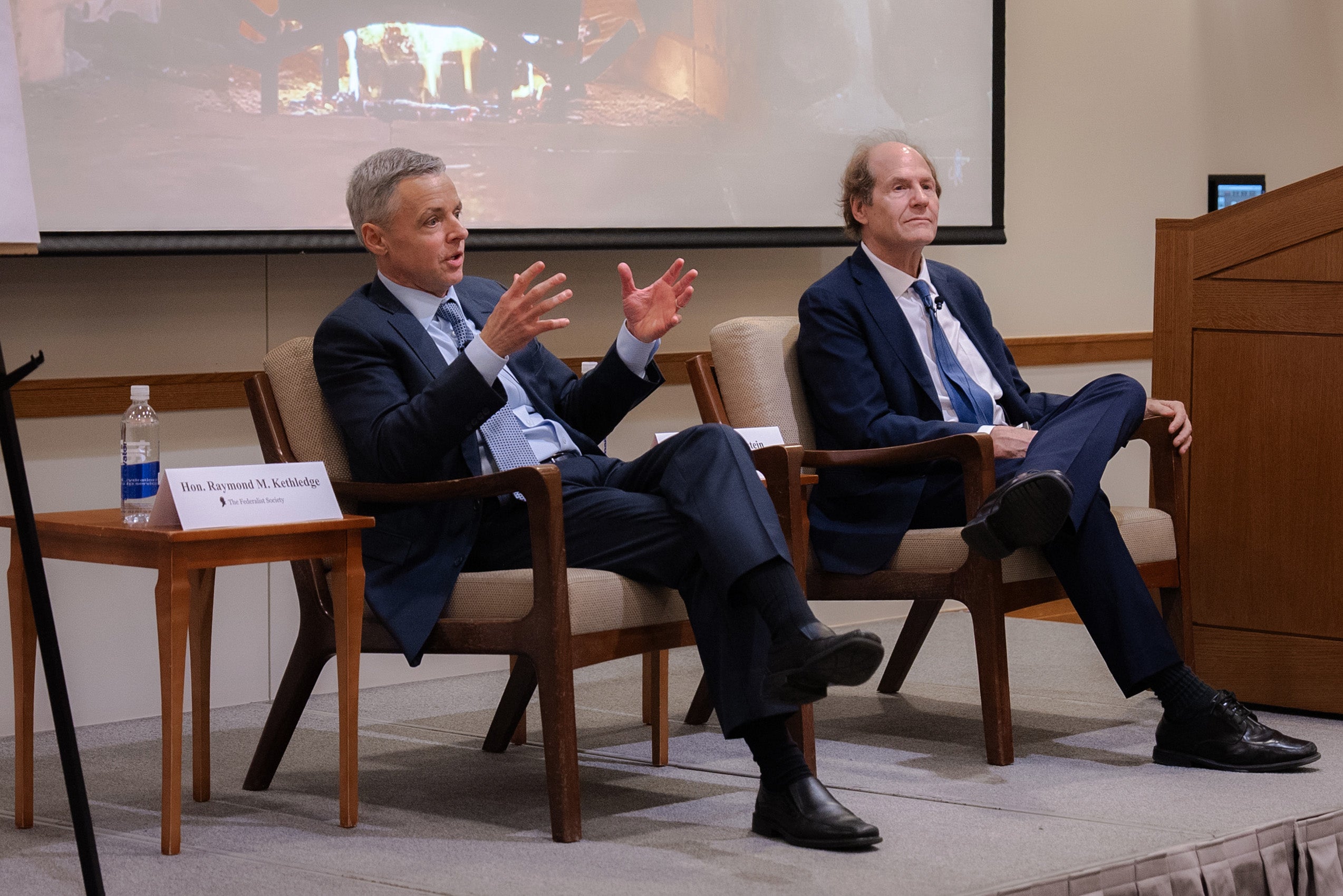
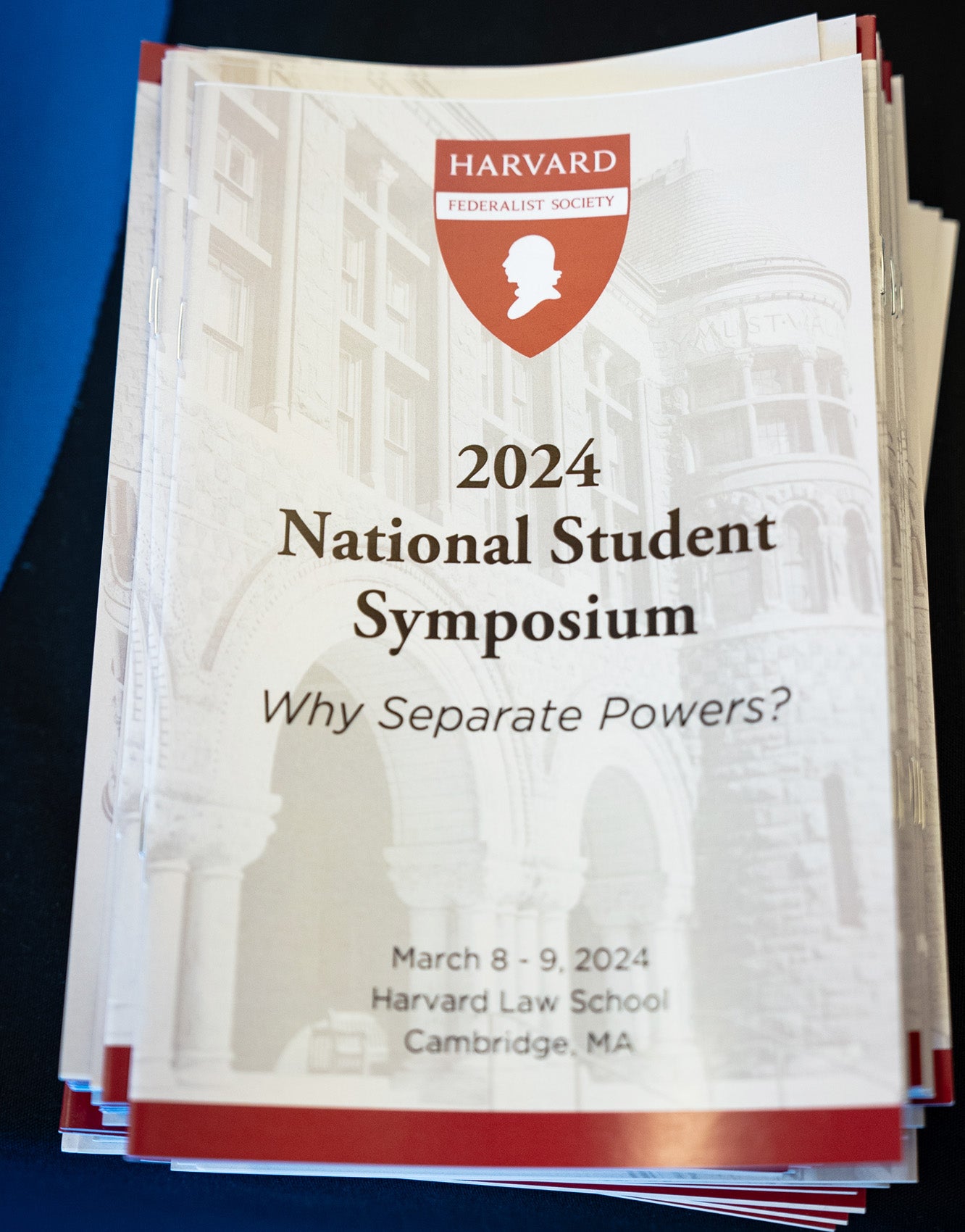
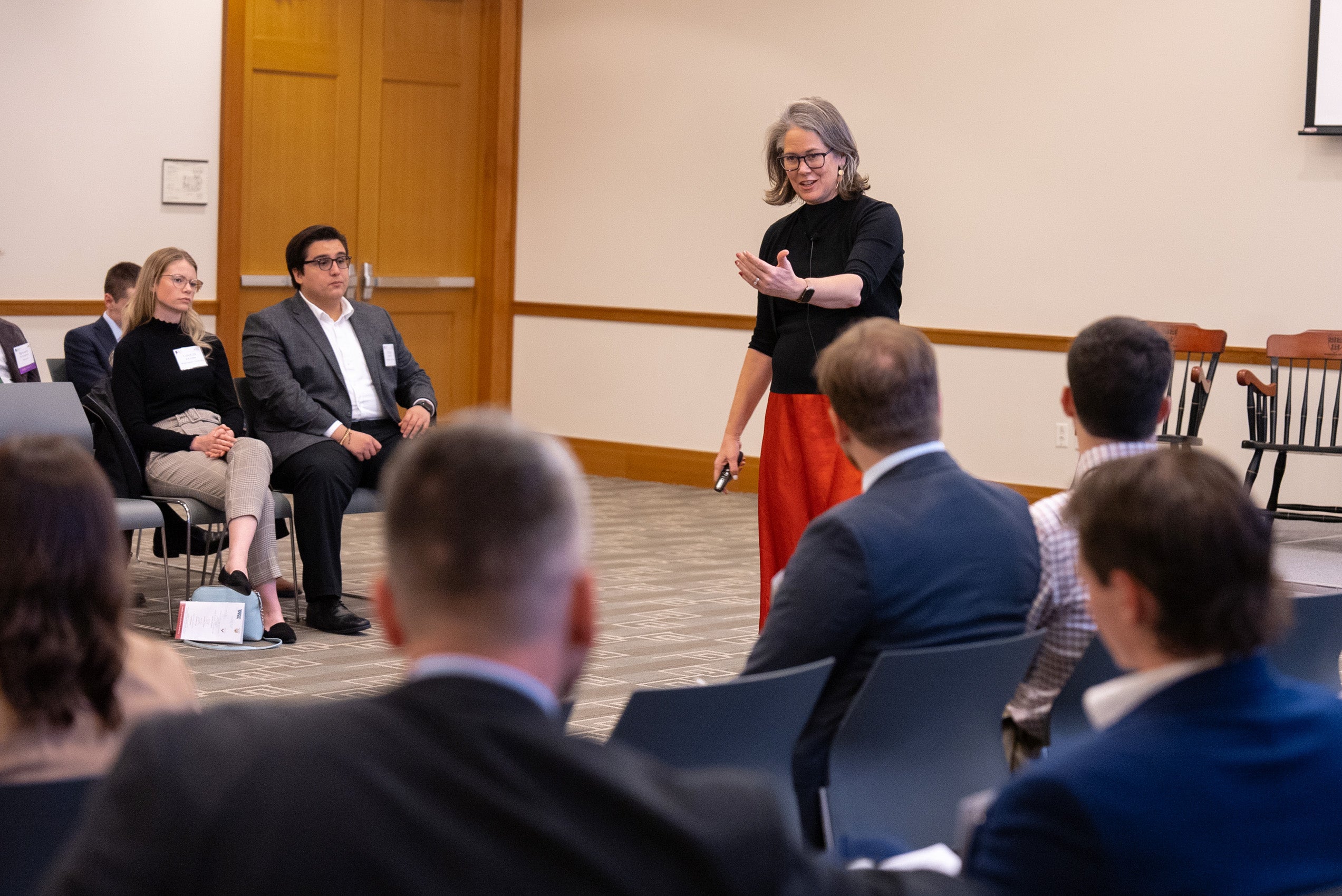
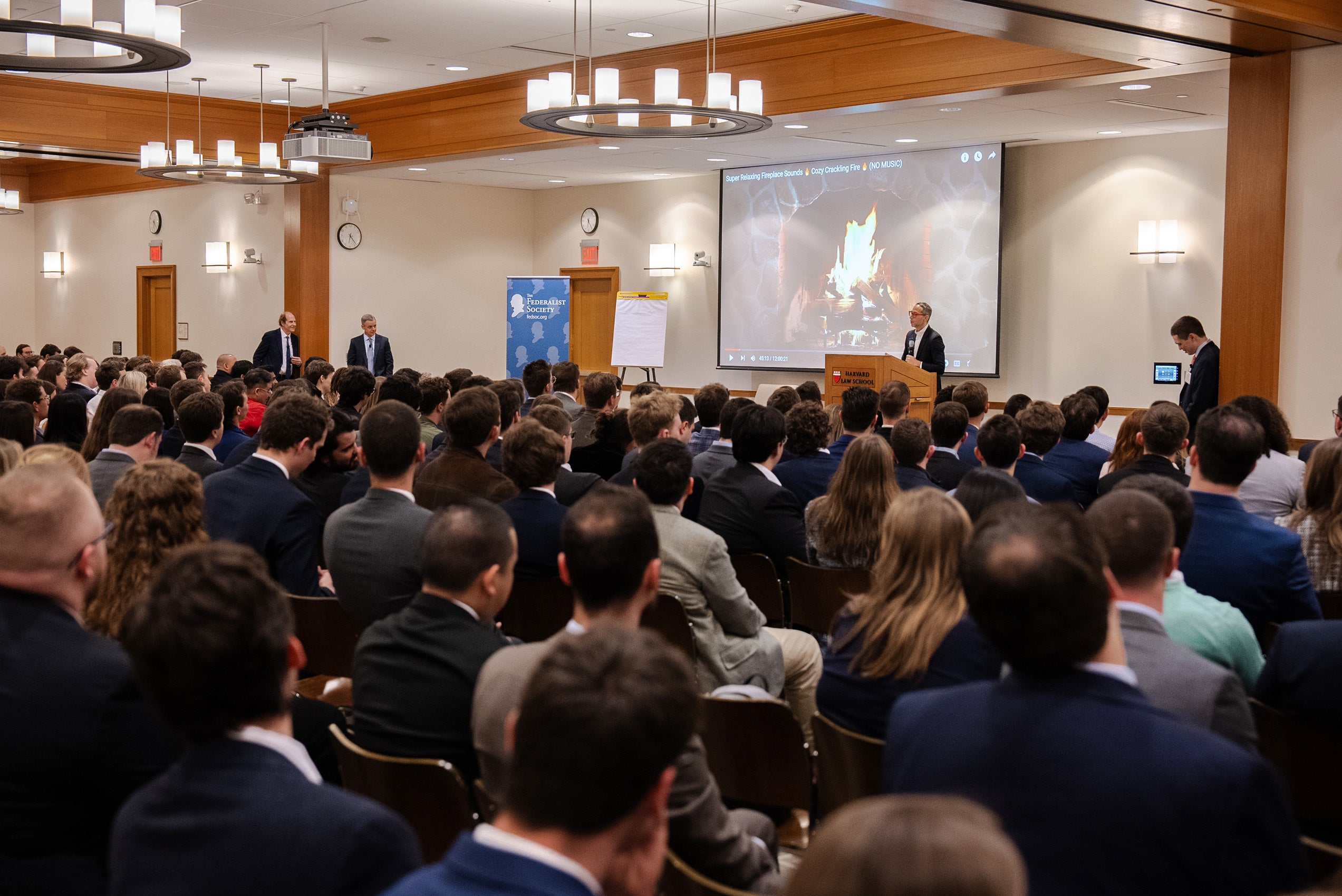
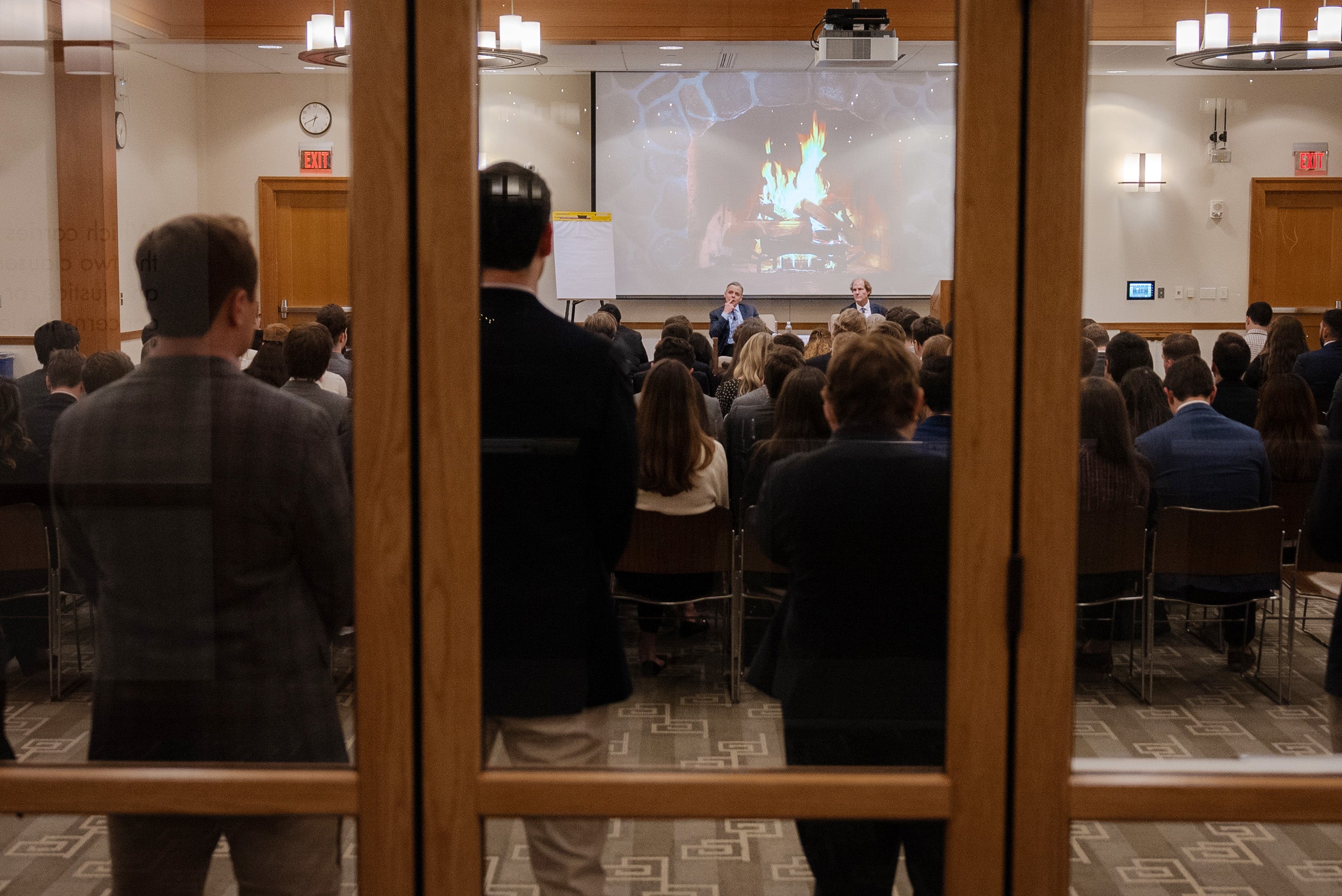
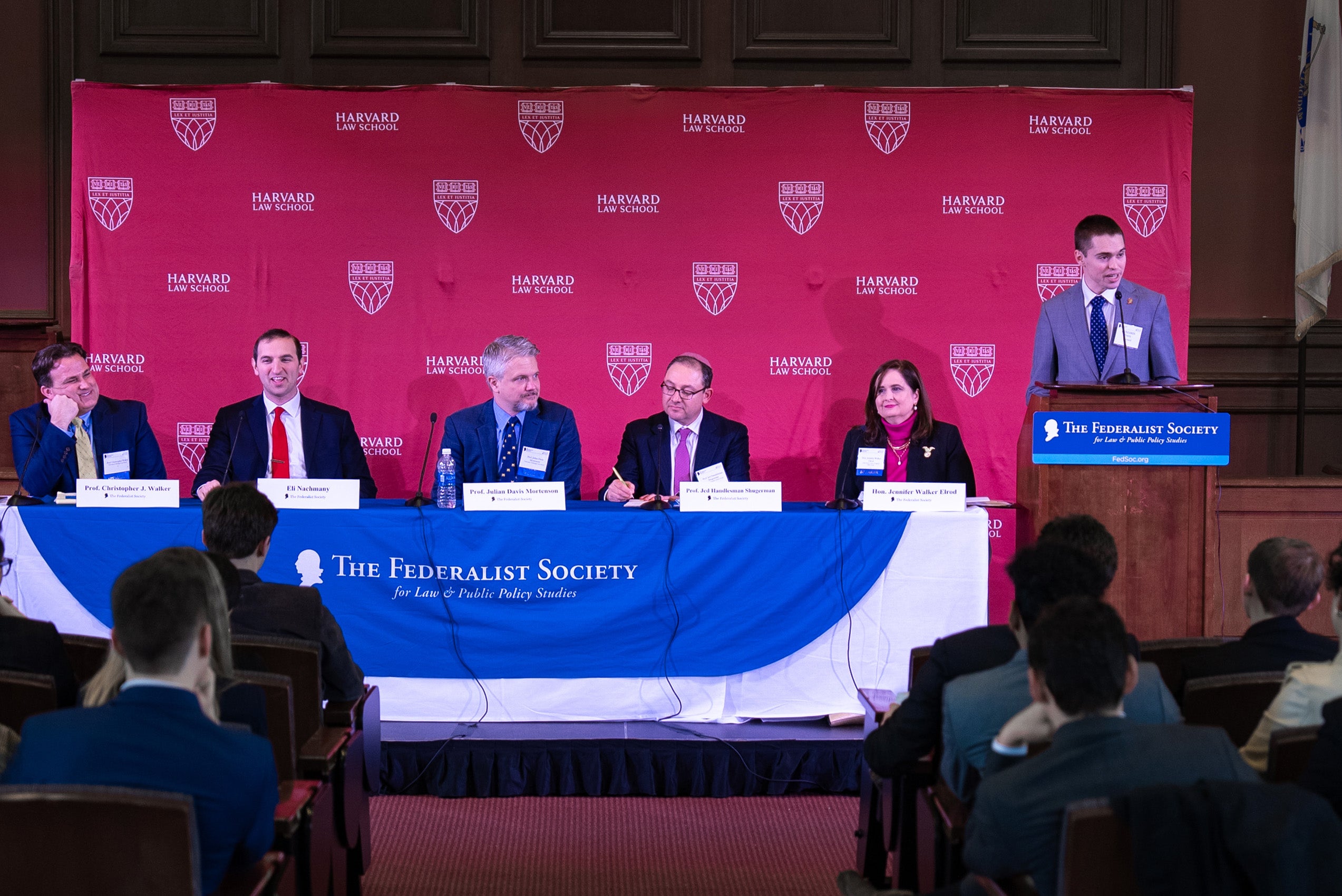
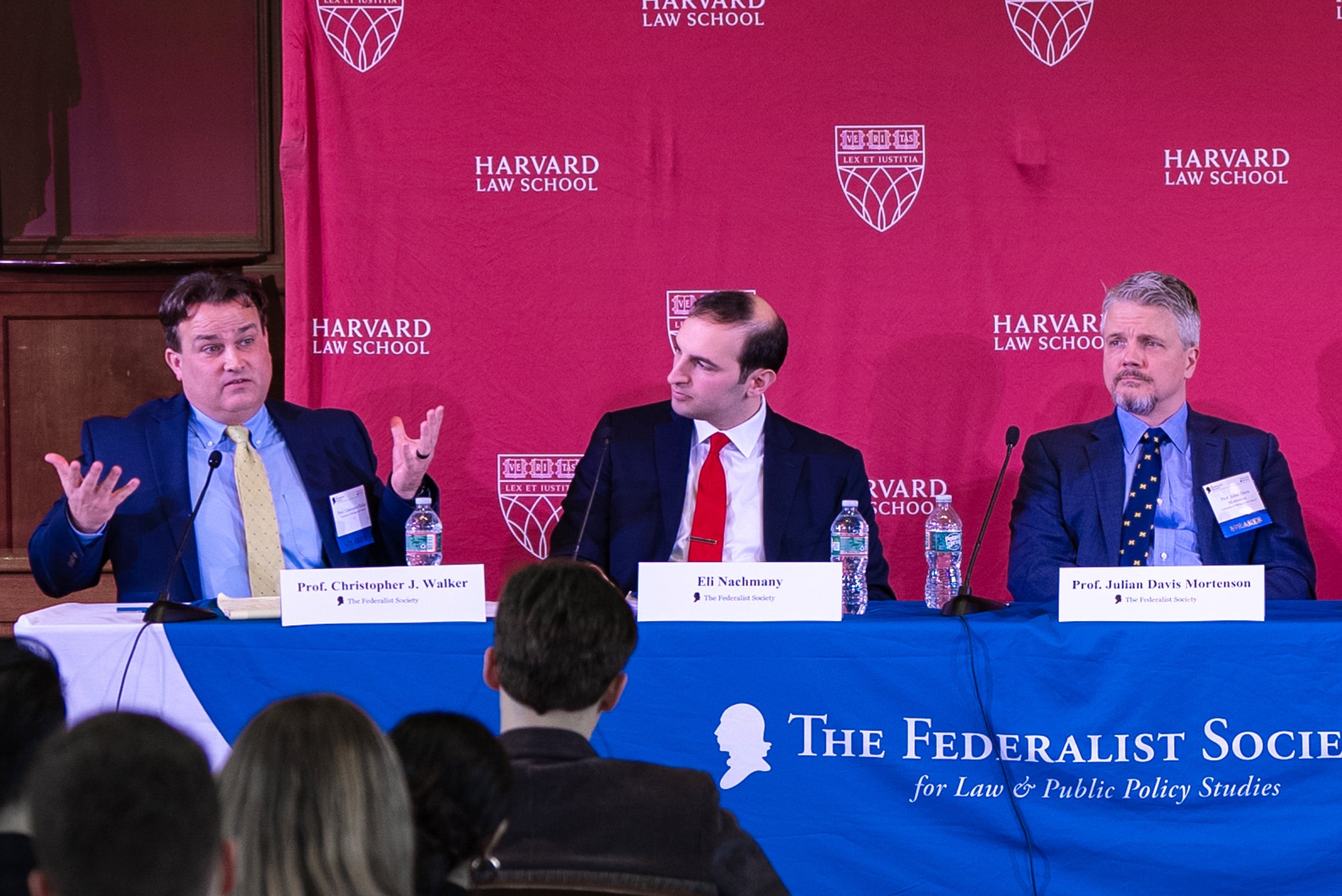
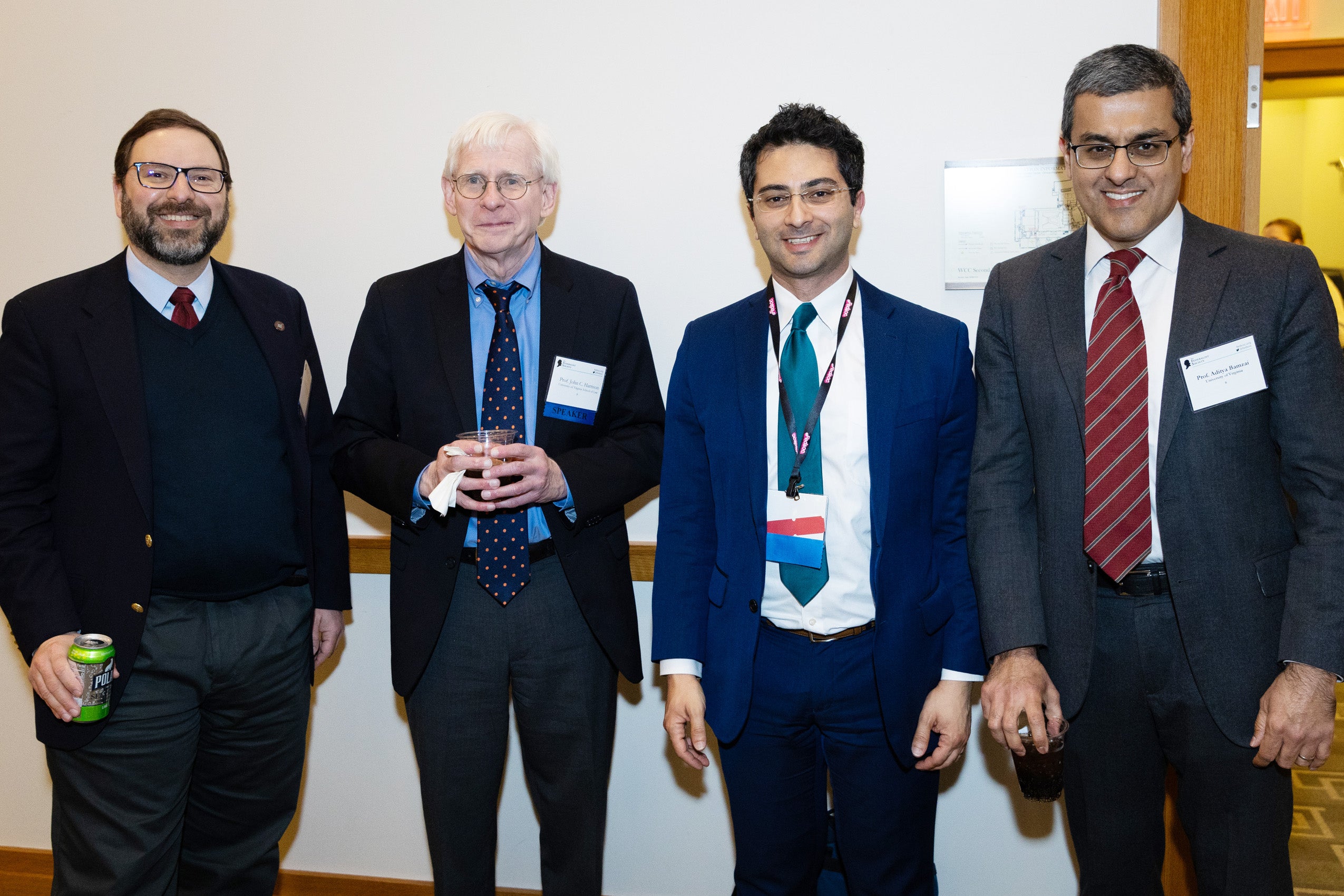
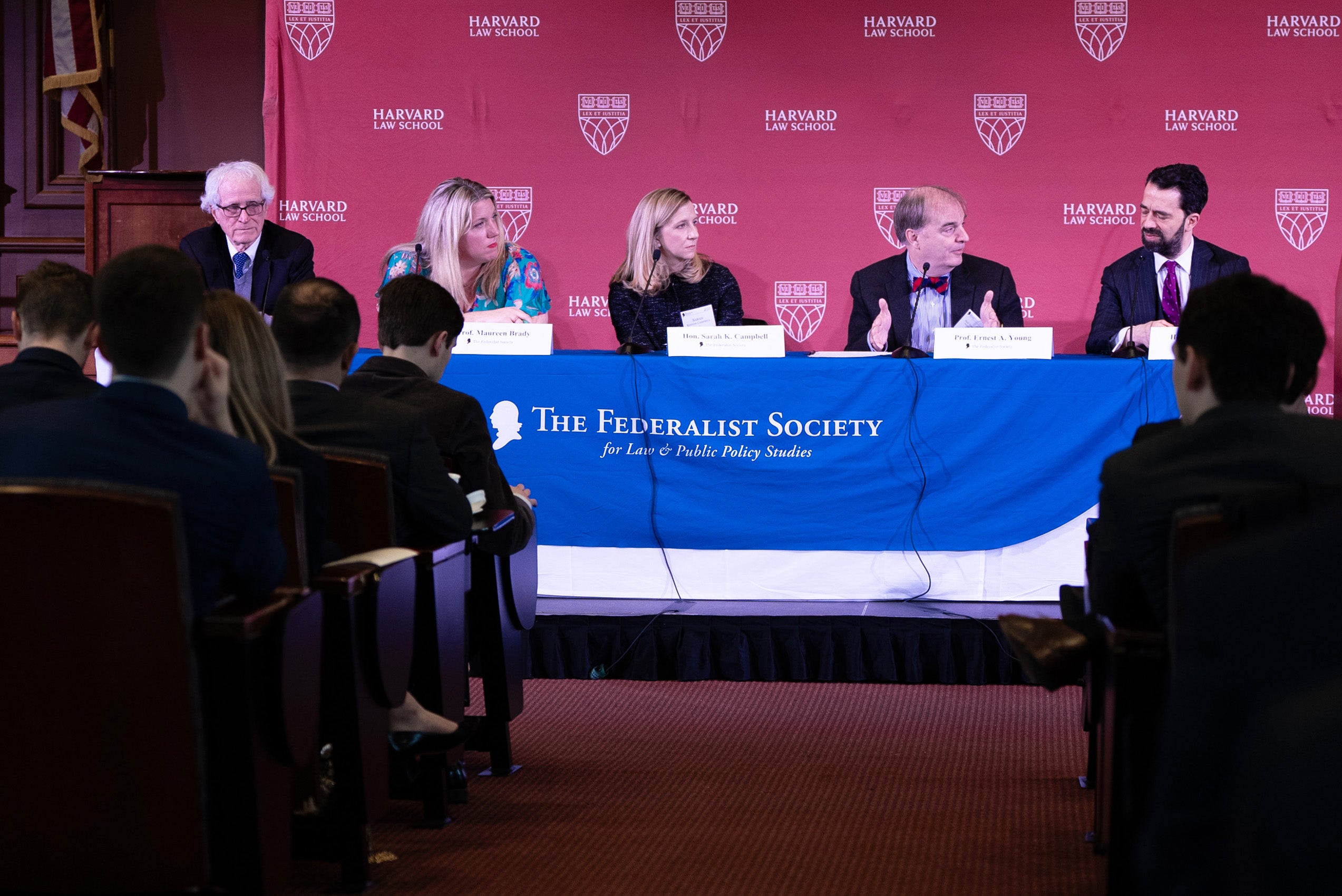
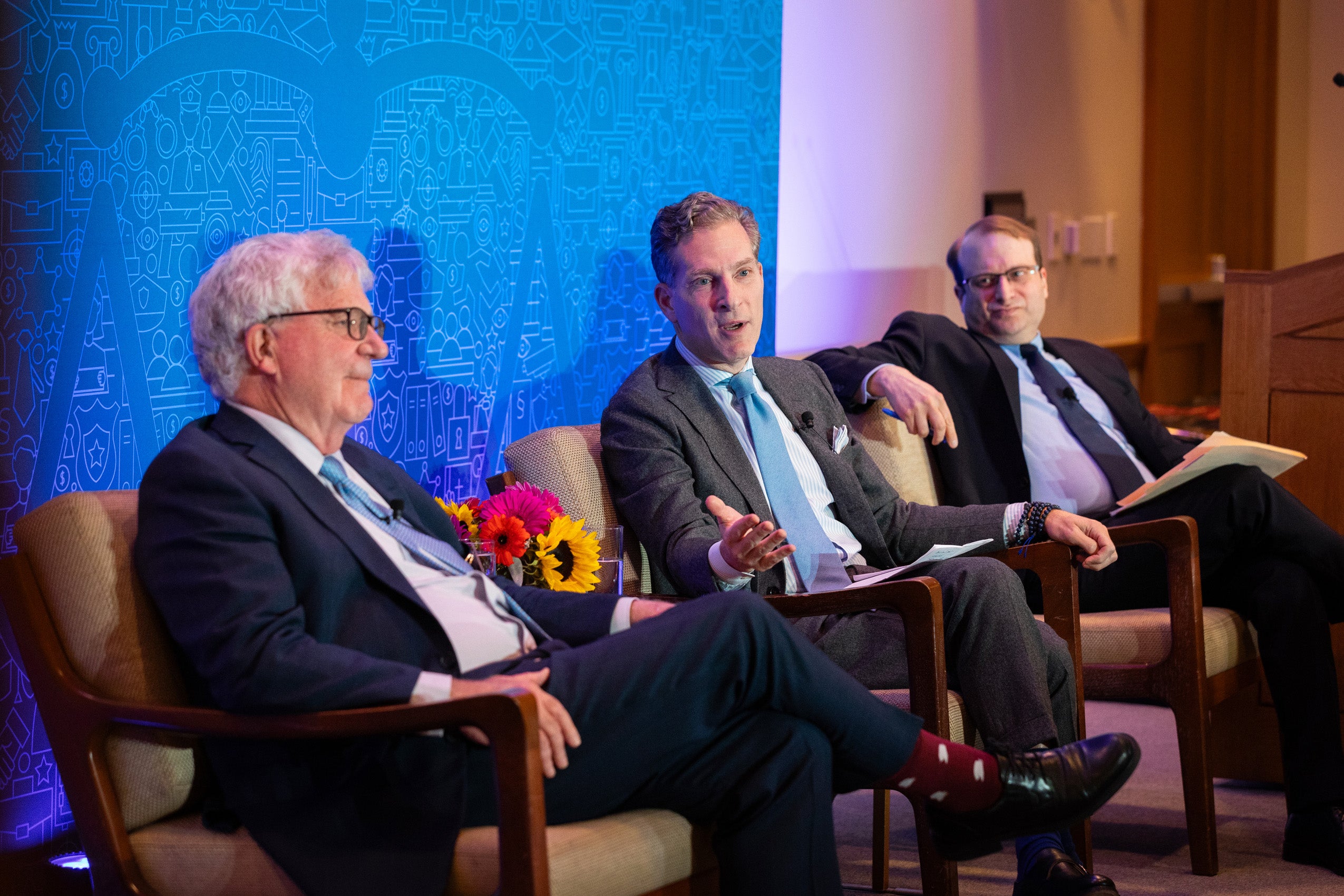
Want to stay up to date with Harvard Law Today? Sign up for our weekly newsletter.
